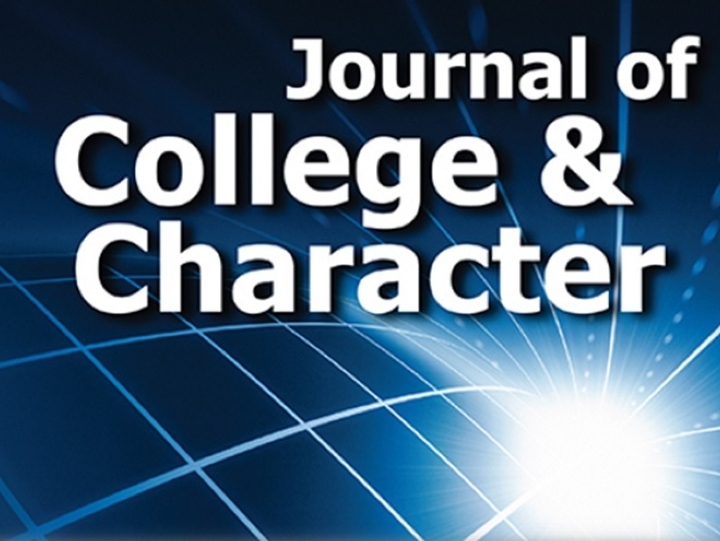
Questions Relating to Moral Development: JCC November 2022
Health, Safety, and Well-being Student Success Civic Engagement Equity, Inclusion and Social Justice Administrators in Graduate and Professional Student Services Adult Learners and Students with Children Equity, Inclusion, and Social Justice Division Health, Safety, and Well-being Initiatives Spirituality and Religion in Higher Education Student-Athlete Wellness and Health Promotion
November 10, 2022
JCC Connextions, Volume 8, No. 4, November 2022
Here are some important questions relating to moral development that are explored in articles in the November 2022 issue (vol. 23, no. 4) of the Journal of College and Character:
1. What do students see as characteristics of moral exemplars ?
College Students’ Developing Understanding of Moral Expertise: A Longitudinal Case Study of the Importance of Models, Mentors, and Practice
Samuel J. E. Cox, Luke T. Waldbillig & Perry L. Glanzer
The authors explore how students seek moral expertise through social support from members of their social or religious communities. Findings suggest students sought out moral experts with religious organizations and peer mentors providing the primary sources of moral expertise. Read the article.
2. How do faculty and staff provide support to college students coping with challenges to their spiritual wellness?
Challenge and Support: Worldview Champions Promote Spiritual Wellness
B. Ashley Staples, Musbah Shaheen, Matthew J. Mayhew & Alyssa N. Rockenbach
Findings suggest that common challenges to spiritual wellness, such as encountering spiritual dissonance or feeling spiritually stifled, can be ameliorated when faculty and staff function as worldview champions who provide support by promoting spiritual self-leadership, helping students find their place in a spiritual community, and advocating for spaces for spiritual engagement.. Read the article.
3. How can future scholarship develop more critical approaches address Christian bias relating to religious, secular, and spiritual identities?
Interfaith?: A Critical Examination of the Interfaith Learning and Development (ILDT) Framework for Religious, Secular, and Spiritual Identities
J. Cody Nielsen, Sachi Edwards & Matthew R. Sayers
The authors We propose several remediations for how the data can be helpful and effective and suggest future scholarship which evaluates more critical approaches that address Christian hegemony and bias relating to religious, secular, and spiritual identities (RSSIs). Read the article.
4. How are students' religious beliefs influenced by athletic participation?
Student-Athletes’ Religious Beliefs, Religious Behaviors, and Religious Identity at a Christian University
Daniel M. Allen, Sean Strehlow, Audrey M. Chisum, Kevin D. Dougherty, Perry Glanzer & Sarah A. Schnitker
This analysis features data from 884 senior students at a private, religiously affiliated, NCAA Division I university. Comparing student-athletes to non-athletes, the authors found that student-athletes scored higher than non-athletes on religious beliefs, religious behaviors, and sense of religious identity.. Read the article.
5. How can student affairs use cultural influences as opportunities for moral development of students?
Keeping Hogwarts Open: Harry Potter in Higher Education
Michelle Boettcher, Halie Swanson, Colby Brown, Sydney Wein & Nikalette Zina
J. K. Rowling is one example of a problematic author whose work has had tremendous influence on college students. The authors examine the tension between the Harry Potter series and the opinions of the series author. Read the article.
6. What are some promising practices for the integration of civic agency in STEM courses?
Developing Civic Agency in STEM Education
Barbara Jacoby
This article is about how colleges and universities are developing civic agency in future STEM professionals as well as in students whose STEM courses are part of their required general education curriculum. It provides an overview of the concept of civic agency and offers multiple examples of outstanding and promising practices, recommendations for the integration of civic agency in STEM courses, and resources for further information and action. Read the article.